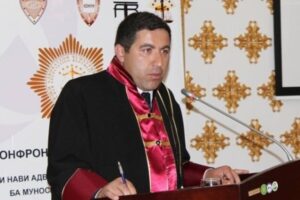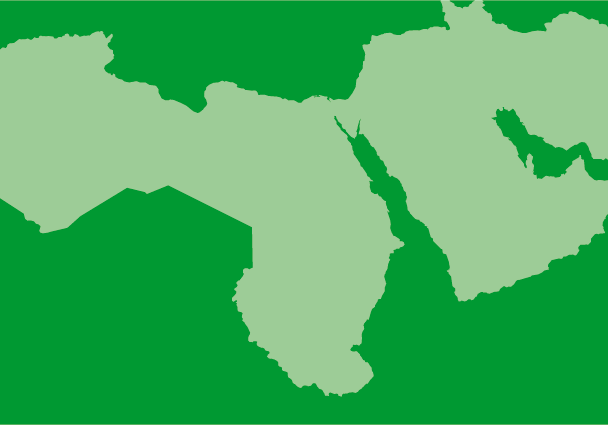
Jan 15, 2024 | News
With 2023 being the deadliest year on record for Palestinians in the West Bank, the International Commission of Jurists (ICJ) condemns the rampant violent attacks by Israeli settlers, almost all of which are backed or tolerated by the Israeli authorities.
“The Israeli authorities must take immediate action to bring a halt to these violent attacks, some of which have led to the forced displacement of Palestinians,” said Said Benarbia, ICJ MENA director. “Those who are responsible for the attacks must be brought to justice with criminal sanctions commensurate to the gravity of the offences.”
Such incidents have dramatically escalated since the renewal of hostilities on 7 October, when Hamas launched unlawful attacks against Israeli civilians, which led to an indiscriminate and disproportionate response by Israeli forces in Gaza. Between 7 October and 27 December 2023, settler attacks against Palestinians in the West Bank led to the killing of at least seven adults and one child. The perpetrators have thus far enjoyed near complete impunity for the apparently unlawful killing and injury of Palestinians, with only two settlers arrested in relation to the attacks and no indictments filed.
Under international humanitarian law and human rights law, Israel, as the occupying power, has an obligation to ensure the safety and protection of the population of the West Bank and the rest of the Occupied Palestinian Territory. Moreover, under human rights law, including under the International Covenant on Civil and Political Rights, Israel has an obligation to protect the population against human rights violations, including their rights to life and security of person, and to prevent such violations, in particular by addressing incitement to hostility or violence.
OHCHR reported that between 7 October and 27 December 2023, Israeli settlers perpetrated at least 367 violent attacks against Palestinians, which caused the displacement of 1208 members of West Bank herding communities, including 586 children. Overall, 2023 was the deadliest year for Palestinians in the West Bank with the number of settler attacks against Palestinian civilians rising to an average of seven per day. In Zanuta village alone, armed Israeli settlers, some in Israeli Army reservist uniforms, forced 150 Palestinians from their homes. The Israeli Defence Forces have generally failed to intervene to prevent and stop violent acts against Palestinians, allowing Israeli settlers to seemingly exploit international preoccupation with events in Gaza to escalate efforts to forcibly remove Palestinians from their homes in the West Bank.
International law prohibits the forced displacement of persons lawfully present in an area by coercion or expulsion, without grounds permitted under international law. In addition, under international law, State-backed or tolerated Israeli settlers’ violence against civilian residents of the Occupied West Bank may amount to “an intentional and severe deprivation of fundamental rights contrary to international law by reason of the identity of the targeted group or collectivity.” This conduct may amount to the crimes against humanity of “deportation or forcible transfer of population” and “persecution”, respectively, if committed knowingly as part of a widespread or systematic attack against the Palestinian population.
The ICJ urges the Israeli government to take immediate and effective measures to prevent and stop settlers from perpetrating further crimes against the residents of the West Bank, to protect the civilian population from unlawful attacks, investigate all instances of settler violence and, when evidence so warrants, to bring those purportedly responsible to justice.
The ICJ also calls for the Israeli government to cease actions liable to further enable settlers to commit additional acts of unlawful violence against Palestinians, including by halting the implementation of its policy to expand settlements, the enforcement of laws facilitating the expropriation of Palestinian property by settler organizations, the unregulated supply of arms to settler communities, and official statements that risk being interpreted as calls for the eradication of Palestinian communities.
Finally, the ICJ calls on the International Criminal Court to investigate these criminal acts as potential war crimes and crimes against humanity that fall under the Rome Statute, and, where warranted, initiate prosecutions of those responsible.
Background
Israel’s establishment of settlements in Palestinian territory occupied since 1967 constitutes a flagrant violation of international humanitarian law. UN experts have also denounced the ongoing forced eviction of Palestinian families in East Jerusalem through the promulgation of discriminatory law that “helps settler organizations expropriate Palestinian properties.” International humanitarian and human rights law prohibit the unlawful seizure of private property and pillaging on occupied territory.
In February 2023, the newly formed Israeli government signed a coalition agreement that seeks to formally extend and annex settlements in the occupied West Bank, and establishes civilian administration for Israeli settlers in illegal West Bank settlements. The ICJ considers the settlement policy outlined in the coalition agreement to be manifestly unlawful under international law, paving the way for the further unlawful entrenchment of discriminatory and acquisitive Israeli practices towards Palestinian communities, while also being liable to incite further settler violence. In this regard, the UN Special Committee to Investigate Israeli Practices noted “a direct correlation between the policies of the Israeli government, as articulated in its coalition agreement, and Israeli practices on the ground,” noting that “settler attacks have increased on average from two a day in 2022 to three a day in 2023.”
Contact
Said Benarbia, Director, ICJ Middle East and North Africa Programme, t: +41-22-979-3800; e: said.benarbia(a)icj.org
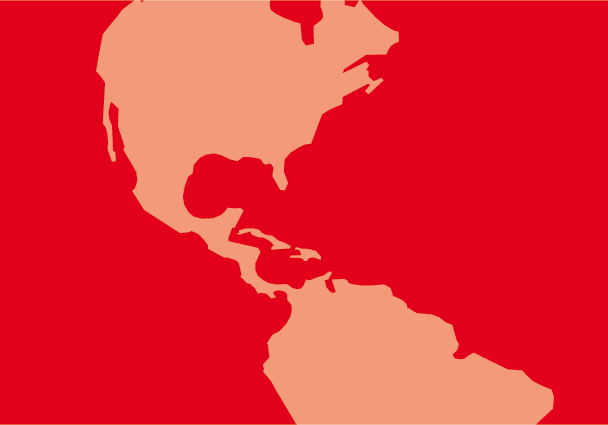
Jan 12, 2024 | Comunicados de prensa, Noticias
La CIJ está preocupada por los intentos de actores poderosos en Guatemala, incluido el Ministerio Público, de subvertir la transferencia de la autoridad presidencial al presidente electo Bernardo Arévalo de León, quien debe asumir el cargo el 14 de enero de 2024.
La CIJ hace un llamamiento a todas las autoridades del Estado y a actores privados para que respeten el Estado de Derecho y desistan de interferir en el proceso de transición y cesen en sus esfuerzos por revocar o hacer ineficaces los resultados de las elecciones presidenciales de 2023.
“El sistema democrático en Guatemala está en juego. Es sorprendente que los ataques contra el proceso electoral provengan de representantes de instituciones del Estado que tienen el deber legal de defender la democracia y los derechos humanos”, afirmó Santiago Canton, Secretario General de la CIJ. “Miembros del Ministerio Público, el Congreso y el poder judicial han actuado en total desprecio de las obligaciones internacionales de Guatemala. En particular, el artículo 1 de la Carta Democrática Interamericana establece el derecho de los pueblos de las Américas a la democracia y el deber de los gobiernos de promover y defender la democracia”, añadió Canton.
El 20 de agosto de 2023, Bernardo Arévalo de León y Karin Herrera Aguilar, del partido “Movimiento Semilla”, fueron elegidos Presidente y Vicepresidenta, respectivamente, para el mandato presidencial 2024-2028. Su victoria fue certificada por el Tribunal Supremo Electoral de Guatemala. Antes y después de las elecciones, hubo múltiples intentos por parte del Ministerio Público y otras autoridades de perturbar el proceso electoral presidencial. El Parlamento Europeo y la Organización de Estados Americanos (OEA) han condenado y calificado algunos de estos hechos como “intentos de golpe de Estado”.
El Ministerio Público, a cargo de María Consuelo Porras Argueta, ha tenido un papel principal en estos intentos mediante el uso arbitrario de sus facultades de persecución penal. Entre otras acciones, el Ministerio Público ha abierto investigaciones penales injustificadas y espurias y ha emitido órdenes de captura y allanamiento contra magistrados y funcionarios del Tribunal Supremo Electoral, el presidente electo Arévalo, la vicepresidenta electa Herrera, miembros del partido “Movimiento Semilla”, miembros de organizaciones de la sociedad civil, académicos y estudiantes.
EL Ministerio Público también ha expresamente puesto en duda la legitimidad del proceso electoral presidencial de 2023. En una conferencia de prensa del 8 de diciembre de 2023, el jefe de la Fiscalía Especial Contra la Impunidad (FECI), José Rafael Curruchiche Cucul, afirmó que el Tribunal Supremo Electoral “se burló de los guatemaltecos” y estaba involucrado en violar la democracia del país. El Fiscal Curruchiche también afirmó que, desde el punto de vista del Ministerio Público, las elecciones de 2023 debían anularse.
Varios jueces han contribuido al uso arbitrario del derecho penal en detrimento del Estado de Derecho en Guatemala. El 8 de enero de 2024, el Juez Séptimo de Primera Instancia Penal, Fredy Raúl Orellana Letona, envió un oficio ante el Tribunal Supremo Electoral para que se ejecutara la orden de suspensión provisional de la personalidad jurídica del partido “Movimiento Semilla”. El Juez Orellana también ha ordenado que se inicie una investigación penal contra funcionarios del Tribunal Supremo Electoral.
En noviembre y diciembre de 2023, el Congreso guatemalteco y la Corte Suprema de Justicia llevaron a cabo el proceso judicial para retirar la inmunidad penal a algunos magistrados del Tribunal Supremo Electoral.
El traspaso legítimo del poder está intrínsecamente ligado al respeto del Estado de Derecho y al ejercicio de los derechos humanos y las libertades fundamentales, incluido el derecho a participar en la vida política y pública mediante el ejercicio del derecho al voto y el derecho a ser elegido. Estos derechos están garantizados por instrumentos internacionales de los que Guatemala es Estado parte, como el Pacto Internacional de Derechos Civiles y Políticos, la Convención Americana sobre Derechos Humanos y la Carta Democrática Interamericana. En consecuencia, la CIJ recuerda que las autoridades guatemaltecas están vinculadas por obligaciones internacionales en virtud de estos instrumentos.
La CIJ también pide a los Estados comprometidos y a la comunidad internacional que actúen para garantizar que las autoridades guatemaltecas respeten el Estado de Derecho, los derechos humanos y el sistema democrático. Si fuera necesario, los Estados miembros de la OEA deberían activar la aplicación del artículo 20 de la Carta Democrática Interamericana, en caso de que se impida que el presidente electo Arévalo asuma el cargo.
Contexto
Las elecciones presidenciales de 2023 tuvieron lugar en un contexto de impunidad generalizada por graves violaciones a los derechos humanos, denuncias confiables de cooptación de órganos judiciales, corrupción institucional generalizada y ataques contra integrantes de organizaciones de la sociedad civil y partidos políticos, según ha sido documentado por múltiples instancias, entre ellas la Comisión Interamericana de Derechos Humanos (CIDH). En el caso de las y los operadores de justicia (juezas, jueces y fiscales), el Alto Comisionado de las Naciones Unidas para los Derechos Humanos ha expresado su preocupación por “el incremento de la criminalización en contra de personas operadoras de justicia” y la “intimidación, el hostigamiento, el procesamiento y la persecución de quienes luchan por la rendición de cuentas por violaciones de derechos humanos y que trabajan en casos de corrupción”.
Ha habido numerosas acciones aparentemente dirigidas a socavar la integridad del proceso electoral presidencial por parte del Ministerio Público. Además de los hechos mencionados anteriormente, el 16 de noviembre de 2023, el Ministerio Público solicitó 31 órdenes allanamiento y 27 órdenes de aprehensión contra activistas, estudiantes, académicos, un miembro del “Movimiento Semilla” y personas defensoras de los derechos humanos. Entre los señalados, se encontraba el abogado de derechos humanos Ramón Cadena, quien había denunciado previamente irregularidades cometidas por el Ministerio Público. Los cargos estaban relacionados con la participación de estas personas en las protestas de 2022 contra la elección del rector de la Universidad de San Carlos. El mismo día, el Ministerio Público también indicó que el presidente electo Arévalo y la vicepresidenta electa Herrera participaron en las protestas “violentas” en busca de ventajas políticas. Por la supuesta participación en las protestas, el Ministerio Público anunció que solicitaría que se retirara la inmunidad al presidente electo Arévalo, a la vicepresidente electa Herrera y a otros miembros de su partido.
El 14 de diciembre de 2023, la Corte de Constitucionalidad resolvió una acción de amparo en la que exhortaba al Congreso a preservar el régimen democrático y a tomar todas las medidas para garantizar la transferencia pacífica del poder el 14 de enero de 2024. Además, la Corte previno a todas las autoridades guatemaltecas a que “actúen de conformidad con sus funciones para la efectividad y debido cumplimiento de la última etapa del proceso electoral.” El 11 de enero de 2024, la Corte de Constitucionalidad concedió un amparo provisional a favor de la vicepresidente electa Herrera. La Corte ordenó a todas las autoridades judiciales abstenerse solicitar y autorizar cualquier orden de aprehensión contra Herrera “sin haberse agotado el procedimiento establecido en la Ley en materia en Antejuicio”.
La situación electoral de 2023 ha sido objeto de grave preocupación de instancias internacionales, entre ellas la Unión Europea y la Organización de Estados Americanos. En esa misma línea, la CIDH otorgó medidas cautelares a favor de Arévalo y Herrera el 24 de agosto de 2023. Las medidas cautelares consideraron las alegaciones de Arévalo sobre amenazas de muerte, hostigamiento, una campaña de desprestigio y vigilancia ilegal en su contra.
El 11 de diciembre de 2023, la CIDH adoptó la “Resolución 03/2023, Derechos Humanos, la Instrumentalización del Sistema de Justicia y los Graves Riesgos para el Estado de Derecho en Guatemala”. La CIDH afirmó que Guatemala atravesaba una “grave crisis política e institucional” debido a “las acciones e injerencias indebidas y arbitrarias por parte del Ministerio Público que atentan contra el resultado de las Elecciones Generales y el proceso de transición de la Presidencia y Vicepresidencia de la República en curso”.
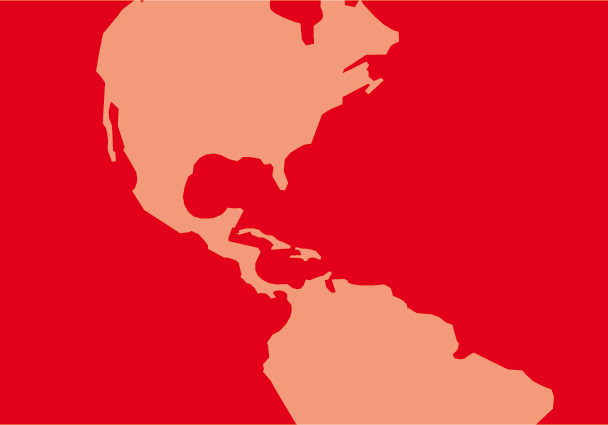
Jan 12, 2024 | News
The ICJ is concerned about attempts by powerful actors in Guatemala, including the Office of the Attorney General, to subvert the transfer of executive presidential authority to President-elect Bernardo Arévalo de León, who is due take office on 14 January 2024.
The ICJ calls on all State authorities and private parties to respect the Rule of Law and desist from interference in the process of transition and to cease efforts to revoke or make ineffective the results of the 2023 presidential elections.
“The democratic system in Guatemala is at stake. It is shocking that the attempts against the electoral process come from representatives of State institutions that have a legal duty to uphold democracy and human rights,” said Santiago Canton, ICJ Secretary General. “Members of the Office of the Attorney General, Congress, and the judiciary have acted in total disregard of Guatemala’s international obligations. In particular, Article 1 of the Inter-American Democratic Charter establishes the right of the peoples of the Americas to democracy and the duty of governments to promote and defend democracy,” added Canton.
On 20 August 2023, Bernardo Arévalo de León and Karin Herrera Aguilar of the “Movimiento Semilla” party were elected President and Vice-President respectively for the 2024-2028 presidential term. Their victory was certified by the Guatemalan Supreme Electoral Tribunal. Prior to and after the election, there were multiple attempts by the Office of the Attorney General and other authorities to disrupt the presidential election process. The European Parliament and the Organization of American States (OAS) have condemned and characterized certain of these efforts as an “attempted coup d’état”.
The Office of the Attorney General, led by María Consuelo Porras Argueta, has played a leading role in these attempts through the arbitrary use of its prosecutorial powers. Among other actions, the Office of the Attorney General has opened unwarranted and spurious criminal investigations and issued of arrest warrants and search warrants against justices and staff members of the Supreme Electoral Tribunal, President-elect Arévalo, Vice-President-elect Herrera, members of the “Movimiento Semilla” party, members of civil society organizations, academicians, and students.
The Office of the Attorney General has also expressly cast doubt on the legitimacy of the 2023 presidential election process. At a press conference on 8 December 2023 a chief prosecutor, José Rafael Curruchiche Cucul, claimed that the Supreme Electoral Tribunal “made a mockery of Guatemalans” and was involved in “violating the country’s democracy”. He also affirmed that the Attorney General’s Office’s view was that the 2023 elections should be annulled.
A number of judges have contributed to the arbitrary use of the criminal law to the detriment of the rule of law in Guatemala. On 8 January 2024, the Seventh Criminal Court Judge, Fredy Raul Orellana Letona, filed a petition before the Supreme Electoral Tribunal to execute an order for the provisional suspension of the legal personality of the “Movimiento Semilla” party. Orellana has also demanded a criminal investigation against staff members of the Supreme Electoral Tribunal.
In November and December 2023, the Guatemalan Congress and the Supreme Court of Justice engaged in legal proceedings aimed at waiving immunity from criminal prosecution of some justices of the Supreme Electoral Tribunal.
The lawful transfer of power is intrinsically linked to the respect for the rule of law and the exercise of human rights and fundamental freedoms, including the right to participate in political and public life, including through voting and standing for elections. These rights are guaranteed by international instruments to which Guatemala is a State party, such as the International Covenant on Civil and Political Rights, the American Convention on Human Rights, and the Inter-American Democratic Charter. Consequently, the ICJ recalls that the Guatemalan authorities are bound by international obligations under these instruments.
The ICJ also calls on engaged States and the international community to act to ensure that the Guatemalan authorities uphold of the rule of law, human rights, and the democratic system. If necessary, Member States of the OAS should trigger the application of Article 20 of the Inter-American Democratic Charter in the event that President-elect Arévalo is obstructed from assuming office.
Background information
The 2023 presidential election took place in a context of widespread impunity for serious human rights violations over the course of decades, reliable allegations of co-option of judicial bodies, widespread institutional corruption, and attacks against members of civil society organizations and political parties, as documented by multiple instances, including the Inter-American Commission on Human Rights (IACHR). In the case of justice officials (judges and prosecutors), the UN High Commissioner for Human Rights has expressed his concern about “the growing number of criminal cases brought against justice officials” and the “intimidation, harassment, prosecution and persecution of those fighting for accountability for human rights violations, including work on corruption cases”.
There have been numerous actions apparently aimed at undermining the integrity of the presidential election process by the Attorney General and prosecutorial authorities. In addition to the incidents mentioned above, on 16 November 2023, the Office of the Attorney General issued 31 search warrants and 27 arrest warrants against activists, students, academics, a member of the Semilla Movement, and human rights defenders. Among those targeted was the human rights lawyer Ramón Cadena, who had previously denounced irregularities committed by the Office of the Attorney General. The charges were related to their participation in the 2022 protests against the election of the rector of the San Carlos University. On the same day, the Attorney General’s Office also alleged that President-elect Arévalo and Vice-president elect Herrera were involved in the “violent” protests seeking political advantage. For the purported participation in the protests, the Attorney General’s Office announced that it would request that President-elect Arévalo, Vice-President elect Herrera, and other members of their party be stripped of their immunity from prosecution.
On 14 December 2023, the Constitutional Court handed down an amparo action in which it exhorted Congress to preserve the democratic regime and to take all measures to ensure the peaceful transfer of power on 14 January 2024. In addition, the Court enjoined all Guatemalan authorities to “act in accordance with their functions for the effectiveness and proper completion of the final stage of the electoral process”. On 11 January 2024, the Constitutional Court also granted a “protection order” in favour of the Vice-President-elect Herrera. The Court ordered all judicial authorities not to issue or grant any arrest warrant against Herrera without waiving immunity from prosecution.
The 2023 electoral situation has been the subject of grave concern of international instances, including the European Union and the Organization of American States. In this connection, the IACHR granted precautionary measures in favour of Arévalo and Herrera on 24 August 2023. The precautionary measures considered Arévalo’s allegations of death threats, harassment, a smear campaign, and illegal surveillance.
On 11 December 2023, the IACHR adopted “Resolution 03/2023, Instrumentalization of the Justice System and Serious Risks for the Rule of Law in Guatemala”. The IACHR stated that Guatemala was experiencing a “serious political and institutional crisis” due to “the unwarranted and arbitrary actions and interference of the Attorney General’s Office, which are endangering the results of this year’s General Election”.
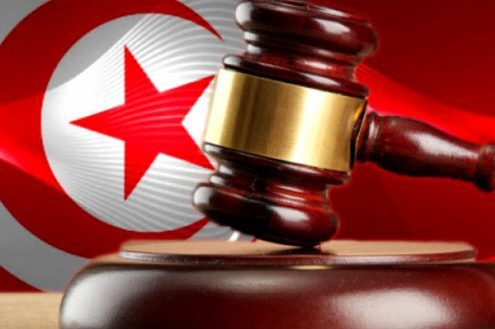
Jan 12, 2024 | News
The ICJ firmly condemns the criminal conviction and sentencing of journalist and columnist Zied Elheni to a six-month suspended sentence of imprisonment on 10 January 2024 on spurious charges — an act of clear retaliation for Zied Elheni’s legitimate exercise of his right to freedom of expression, including to criticize government members.
البيان باللغة العربية
“This guilty verdict is part and parcel of an escalation in attacks on journalists and another concrete illustration of the Tunisian authorities’ authoritarian drift and of their drive to restrict the legitimate exercise of the right to freedom of expression and to silence independent voices in the country,” said Said Benarbia, ICJ Middle East and North Africa programme director. “These attacks violate media freedom and the right of the public to freely access information and have a chilling effect on free speech,” he added.
On 28 December 2023, Zied Elheni was summoned to appear before the Fifth Central Cybercrime Brigade of the Aouina National Guard, a few hours after he had made a statement critical of the Minister of Commerce on Radio IFM. On the same day, the public prosecutor at the Tunis First Instance Tribunal decided to remand Elheni in custody on suspicion of offences under article 24 of Decree-Law 54; his detention was extended by 48 hours on 30 December.
On 1 January, the public prosecutor at the Tunis First Instance Tribunal charged Elheni with “harming or disturbing third parties through public telecommunications networks,” under article 86 of the Telecommunications Code, and remanded him in custody pending trial. On 10 January, Elheni was tried before the Criminal Chamber of the Tunis First Instance Tribunal and convicted of the charges.
In June 2023, Elheni was arrested and questioned by the Fifth Central Cybercrime Brigade of the Aouina National Guard in a distinct case, following a statement he had made on the radio in which he had criticized the authorities’ arbitrary reliance on the crime of offending the President of the Republic under article 67 of the Criminal Code. He was later released and there have been no further developments in this case.
The ICJ calls on the Tunisian authorities to quash Elheni’s conviction and sentence under article 86 of the Telecommunications Code and to drop all charges against all journalists currently being prosecuted solely for the legitimate exercise of their journalistic duties and the peaceful exercise of their right to freedom of expression, and to immediately cease all practices that impede the independent work of journalists.
Background
There has been a growing pattern of prosecutions against journalists since July 2021 in Tunisia. Monia Arfaoui and Mohamed Boughalleb were prosecuted in March and April 2023 based on Decree-Law 54, in relation to their work as investigative journalists. Noureddine Boutar, journalist and director of Mosaique FM, was also arrested and placed in pre-trial detention in February 2023 in relation to criminal proceedings based on “State security-related” charges aimed to crack down on government critics, before being released on bail in May 2023. The charges against him, however, are still pending.
Contact
Said Benarbia, Director, ICJ Middle East and North Africa Programme, t: +41-22-979-3800; e: said.benarbia(a)icj.org
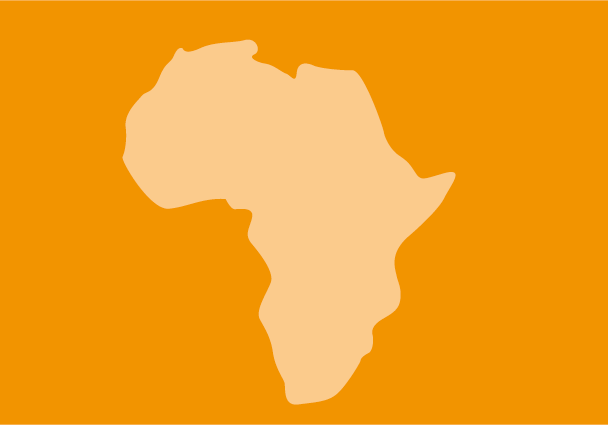
Jan 8, 2024 | Advocacy, Cases, News
For Immediate Release
Gambian Ex-Minister Sonko Faces Crimes Against Humanity Charges
(Geneva, January 5, 2024) – The opening of a Swiss trial on January 8, 2024, for serious crimes committed in The Gambia represents a significant advance for justice for the victims of grave abuses, Gambian and international groups that are part of the Jammeh2Justice campaign said today.
The former Gambian Interior Minister Ousman Sonko is charged with crimes against humanity relating to torture, kidnapping, sexual violence, and unlawful killings between 2000 and 2016 under then-President Yahya Jammeh. Jammeh’s 22-year rule was marked by systematic and widespread human rights violations, such as arbitrary arrests, torture including sexual violence, extrajudicial killings, and enforced disappearances of actual and perceived opponents to his rule.
“The trial of Ousman Sonko is another major step in the search for justice for victims of brutal crimes and their families committed under Jammeh’s rule,” said Sirra Ndow, coordinator of the Jammeh2Justice campaign. “The Sonko case should reinforce efforts back in The Gambia to try crimes under Jammeh’s rule so that perpetrators are held to account for the atrocities committed.”
Sonko was arrested in Bern, Switzerland on January 26, 2017, the day after TRIAL International filed a criminal complaint against him. The Office of the Attorney General of Switzerland filed an indictment against Sonko before the Federal Criminal Court on April 17, 2023. The trial, taking place in the city of Bellinzona, is expected to last about three weeks.
The trial is possible because Swiss law recognizes universal jurisdiction over certain serious international crimes, allowing for the prosecution of these crimes no matter where they were committed and regardless of the nationality of the suspects or victims. Swiss nongovernmental organizations, former federal prosecutors, members of parliament, and others have previously criticized judicial officials in Switzerland for lagging behind other European countries on universal jurisdiction cases despite having solid legislation to address serious crimes.
“With Sonko’s trial, Switzerland appears at last to be gaining momentum on prosecuting atrocity crimes committed abroad,” said Philip Grant, executive director at TRIAL International, which supports plaintiffs in the case. “Sonko is the highest-level former official to be tried under the principle of universal jurisdiction in Europe.”
Sonko is the second person to be tried in Switzerland before a non-military court for serious crimes committed abroad, the second person to be tried in Europe for crimes committed in The Gambia, and the highest ranked official to be prosecuted in Europe on the basis of universal jurisdiction. Gambian activists and survivors, and international advocates will attend the trial’s opening in Bellinzona and are available for comment. The first case addressing crimes committed in The Gambia was in Germany against Bai Lowe, a former member of the paramilitary unit known as the “Junglers,” which Jammeh created. Lowe was convicted and sentenced to life in prison by a German court on November 30, 2023, for two murders and an attempted murder, constituting crimes against humanity.
A major challenge will be to ensure that Gambians, whether in the audience or outside the courtroom, can access, follow, and understand the proceedings, which will be conducted in German. Survivors, victims’ groups, and civil society groups have tried to ensure that information on developments is disseminated within The Gambia to increase their impact.
“Developments in the proceedings of such a significant case should be made accessible to Gambians, victims and non-victims alike, in the English language, which they understand, there by boosting their interest in the trial,” said Fatoumata Sandeng, a plaintiff in the Sonko case who heads the Solo Sandeng Foundation. “Greater action on accountability by the government back home in Gambia is also needed.”
Since Jammeh’s fall, The Gambia has moved forward with only two prosecutions for Jammeh-era crimes. In December 24, 2021, the final report of Gambia’s Truth Reconciliation and Reparations Commission (TRRC) found that Jammeh and 69 of his associates committed crimes against humanity, and called for their prosecution. On May 25, 2022, the Gambian government accepted the TRRC’s recommendation for accountability, but without an action plan.
On May 12, 2023, the government presented a long-awaited detailed implementation plan calling for the creation of a Special Prosecutor’s Office to complete the investigations initiated by the TRRC and to prepare case-ready dossiers. A hybrid tribunal of Gambia and the Economic Community of West African States (ECOWAS) would be created to carry out prosecutions of the most serious offenses. The Gambia and ECOWAS have created a joint technical committee to develop the hybrid court.
“The Gambian government and ECOWAS should move without delay to create the hybrid court,” said Elise Keppler, associate international justice director at Human Rights Watch. “Victims and the Gambian public have waited a very long time to have the chance to see justice done.”
Groups involved with the campaign include: Africa Center for International Law and Accountability (ACILA), African Network Against Extrajudicial Killings and Enforced Disappearances (ANEKED), Amnesty International–Ghana, Center for Justice and Accountability, Commonwealth Human Rights Initiative (CHRI), Gambia Center for Victims of Human Rights Violations, Ghana Center for Democratic Development (CDD-GHANA), Human Rights Advocacy Center, Human Rights Watch, International Commission of Jurists, Institute for Human Rights and Development in Africa (IHRDA), Media Foundation for West Africa (MFWA), POS Foundation, Right 2 Know–Gambia, Solo Sandeng Foundation, The Toufah Foundation, TRIAL International, and Women’s Association for Victims’ Empowerment (WAVE).
For more information on the trial, please visit:
https://trialinternational.org/latest-post/ousman-sonko-case-the-second-trial-for-crimes-against-humanity-in-switzerland-to-take-place-in-january-2024/
or, https://trialinternational.org/wp-content/uploads/2023/04/The-Ousman-Sonko-Case_QA.pdf
For more information, please contact:
For Human Rights Watch, in New York, Elise Keppler (English, French): +1-917-687-8576 (mobile); or kepplee@hrw.org. Twitter: @EliseKeppler
For TRIAL International, in Geneva, Vony Rambolamanana (English, French, German): +33-66 -48-80-305 (mobile); or media@trialinternational.org. Twitter: @trial
For ANEKED, in New York, Nana-Jo Ndow (English, French, Spanish, Portuguese): +1-929-684-5734 (mobile); or nanajo.ndow@aneked.org. @theANEKED
For International Commission of Jurists, in Barcelona, Reed Brody (English, Spanish, French, Portuguese): +1-917-388-6745 (mobile); or reedbrody@gmail.com. Twitter: @reedbrody
For Solo Sandeng Foundation, in Germany, Fatoumatta Sandeng (English, German, Mandinka, Wollof) +49-16-31-74-75-19 (mobile); or solosandengfoundation@gmail.com. Twitter: @solosandengfound








